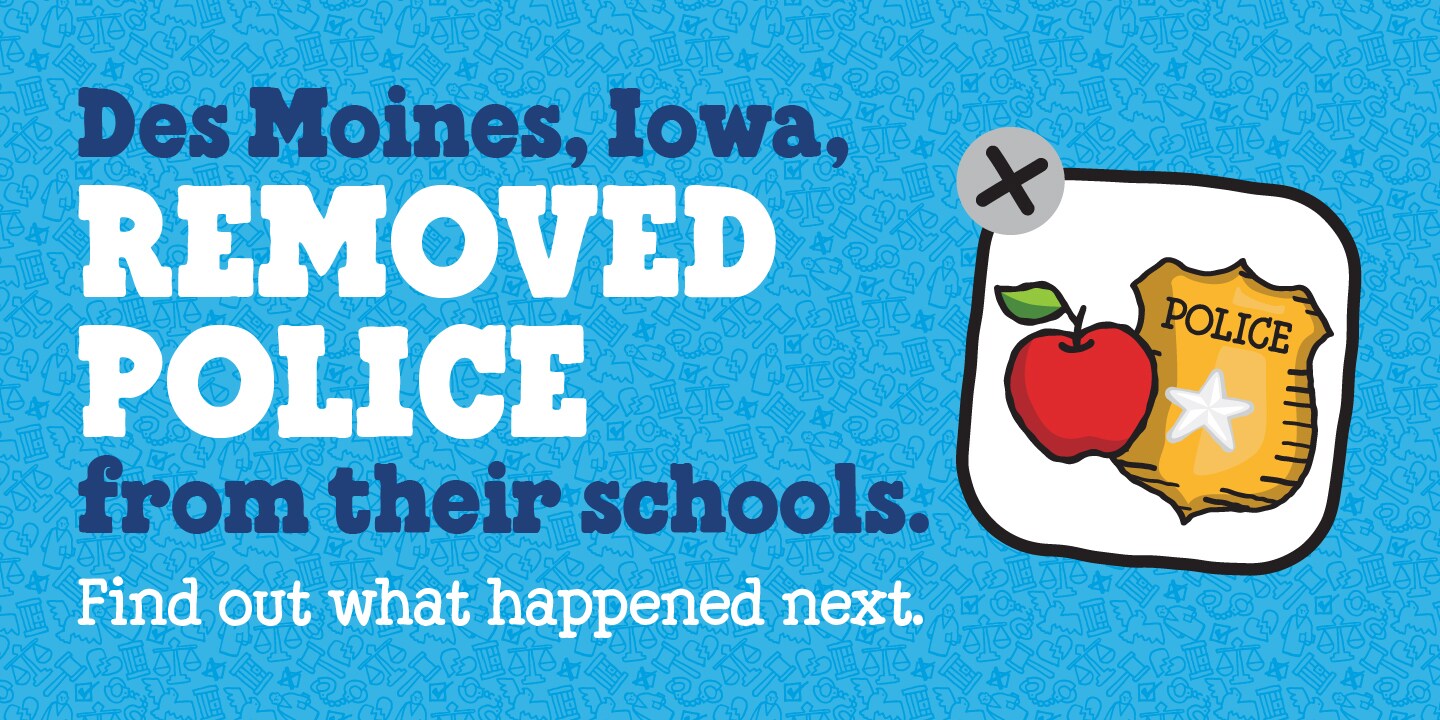What’s Your Love Language?
This Valentine’s Day, show love by standing up for your values and taking action. Join us and the ACLU in writing love letters to the communities and causes you care about!

After a campaign organized and spearheaded by Des Moines high school students that led to intense community pressure and broad support for change, the Des Moines, Iowa, School Board voted to remove police from public schools in 2021.
School resource officers (SROs) had been embedded in Des Moines schools since 1999. Keep reading to find out what happened when they no longer patrolled the halls.
Endí Montalvo-Martinez and Lyric Sellers led the movement to remove SROs in Des Moines. In talking to their friends and classmates, they learned that many of them, especially Black and Brown students, were intimidated and felt targeted by police officers in the school. Then they contacted the Iowa Department of Human Rights and found hard data that backed up students’ claims.
Research showed that SROs in Des Moines schools (like SROs in schools across the country) had indeed—routinely—targeted, punished, and criminalized students of color.
The school board took the $750,000 it was spending every year on policing and instead hired 20 new trained staff that function a lot like counselors in a fairly new field called “restorative practices.”
Restorative practices is an emerging model for helping students build community and overcome conflicts through an in-school mediator, without involving the police.
That last part is key: “without involving the police.” Counselors work within the school and with students to create a better learning environment, to foster growth and understanding, and to prevent and preempt problems from happening in the first place. SROs, like the majority of police officers, show up only once an incident has occurred. (And, far too often, when police show up, they make things even worse).
Des Moines schools are now using a three-tiered restorative practices system.
The third tier is used as an alternative to suspension, expulsion, or involving police.
Students are given a space where teachers can visit them as they do scheduled schoolwork. Restorative practices facilitators visit once a week to help them work through their behavior and make progress toward rejoining the school community.
Dismantling a system that’s been in place since 1999 isn’t easy, but so far Des Moines’ new approach to prioritizing the health and safety of its students seems to be working!
What Des Moines is doing should serve as a model for other school districts across the country. When police no longer patrol the hallways, students feel safer, learn better, and avoid the school to prison pipeline that feeds our system of mass incarceration.
The school-to-prison pipeline is a term used to describe the way racist policing in schools winds up trapping so many students of color in the criminal legal system.
Work with us to shut down the school-to-prison pipeline and make sure every school in the US is police-free.
Subscribe Now And We'll Make Sure You Get The Inside Scoop On Ben & Jerry's Fun And Flavors! It's Like Dessert For Your Inbox, And You're Going To Want Seconds.